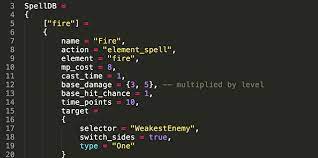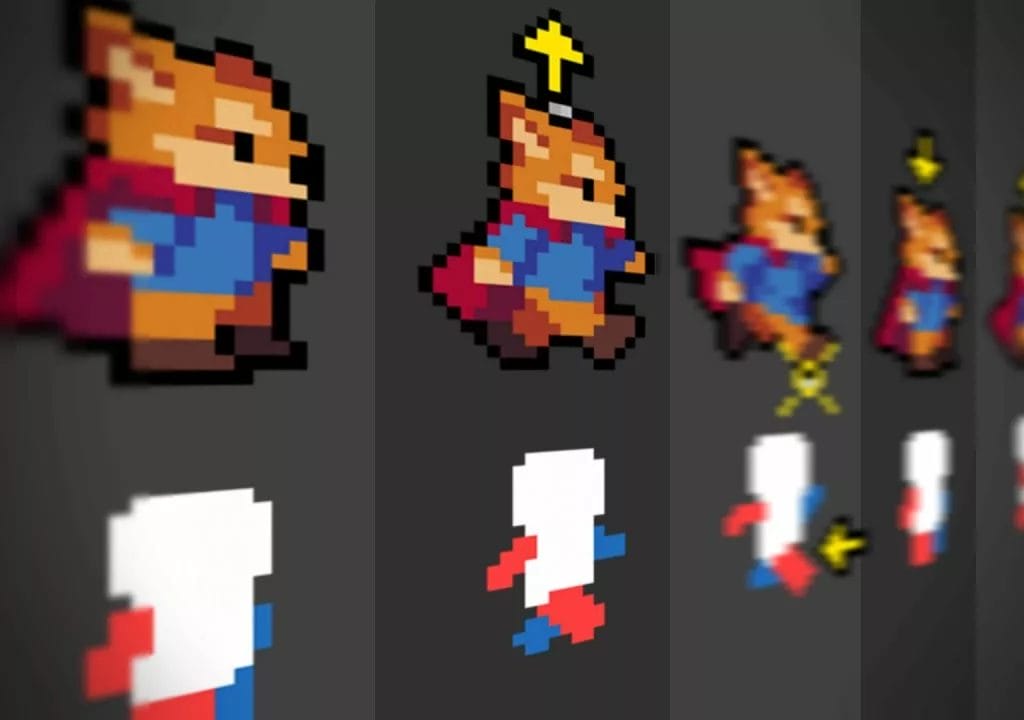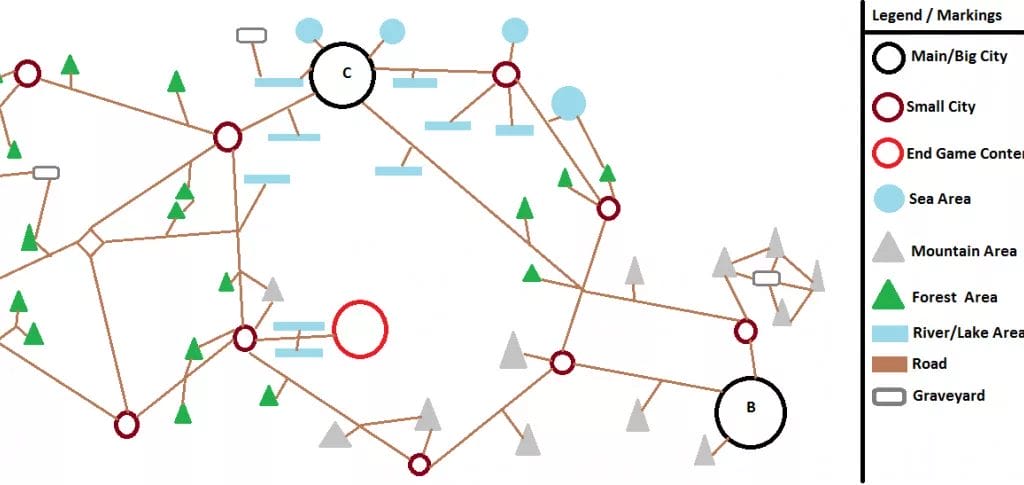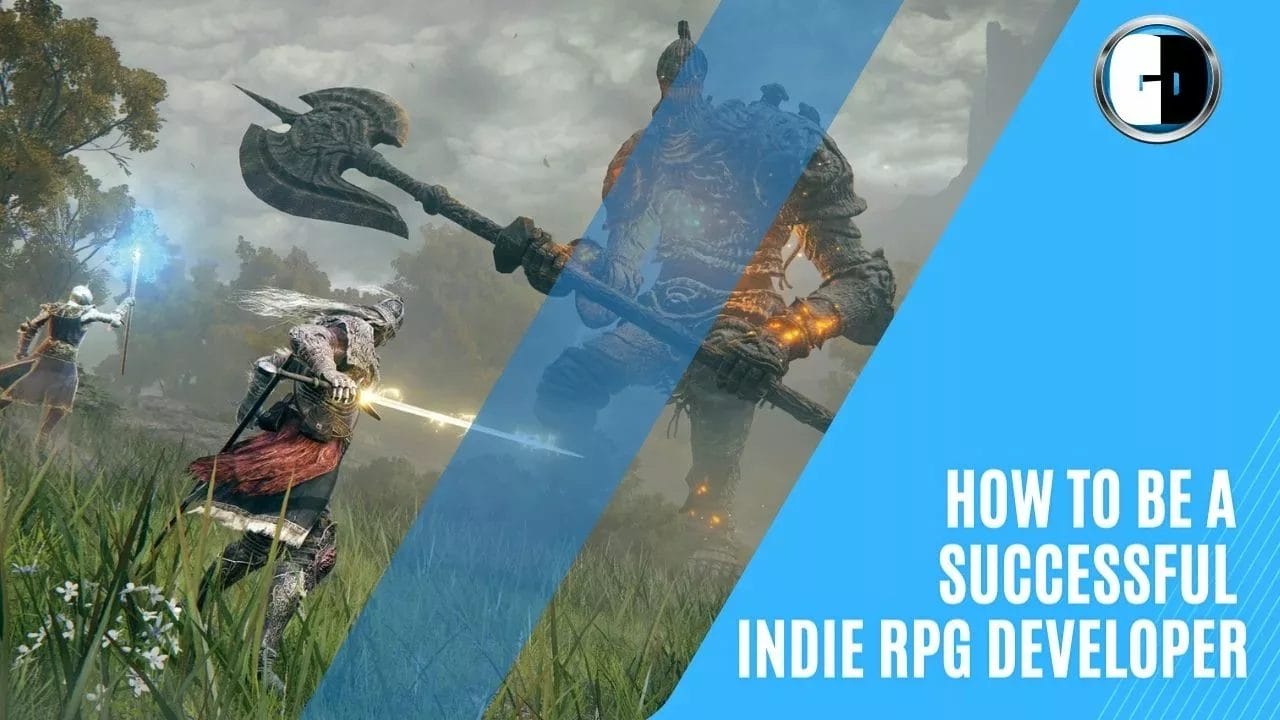In this article we will be addressing one question that we are requested very frequently: How to Be a Successful Indie RPG Developer?. Creating an indie RPG is tough. But with the right skills and process, small teams or even solo developers can build breakout game hits.
This guide covers step-by-step how to become a successful indie RPG developer. Learn key advice for mastering essential disciplines like programming, art, design, testing, production and promotion.
Use proven strategies to transform game ideas into reality. Release early and often. Gather player feedback. Scope realistically. Market creatively.
Let’s embark on the journey of a lifetime filled with boundless creativity and coding challenges!

Contents: How to Be a Successful Indie RPG Developer
Learning Technical Building Blocks
Crafting a complex RPG requires diverse expertise across many development areas:
Programming

Code handles game logic, mechanics, simulations and gameplay interactions. Master languages like:
- C# – Used widely in Unity and other engines.
- C++ – Powerful for high performance.
- JavaScript / TypeScript – Increasingly popular for web games.
Learn basics first, like variables, functions, OOP. Then specialize in game dev patterns. Study shooter tutorials before attempting open world systems.
Table: Recommended Programming Learning Stages
| Stage | Focus | Resources |
|---|---|---|
| 1 | Core language syntax, tools | Codecademy, Udemy, YouTube |
| 2 | Engine fundamentals | Unity, Unreal tutorials |
| 3 | Game patterns | Courses on RPG mechanics |
| 4 | Specialize | Multiplayer, Optimization |
Art and Animation

Visually building characters, environments and effects is crucial for imaginative worlds.
Use digital art tools like Photoshop, Blender, Procreate. Learn fundamentals about composition, lighting, color theory.
Study stylized aesthetics before tackling realism. Reuse elements. Support animators exporting properly optimized assets like sprite sheets.
Game Design

Great code and art needs great design as a foundation.
Define unique mechanics that provide novel experiences. Sketch world histories. Outline quest flows and narrative beats connecting story arcs across sprawling lands. :astonished:
Concept core gameplay loops first. Align character progression systems to reinforce chosen emotional flavors: horror? mystery? Add multiplayer elements once stable.
Quality Assurance
Squash nasty bugs through disciplined testing methodology. Identify issues players would find frustrating. Is combat balanced fairly? Do puzzles make intuitive sense?
Prioritize testing riskiest elements first – new features, complex subsystems. Check edge cases. Start testing early, even with rough prototype builds using placeholder visuals. Fixing bugs late in development is 1000x harder!
Defining an Exciting Game Concept
Every great RPG needs a compelling hook – settings, narratives or mechanics that feel fresh. Flesh out initial ideas into formal proposals driving scope:
Table: Key Sections of Good Concept Doc
| Section | Includes |
|---|---|
| Overview | Genre, Core Hook/Theme, Target Market |
| Worldbuilding | Maps, Factions, Languages, Bestiary |
| Characters | Protagonists, Allies, Enemies |
| Narrative | Main Arcs, Quest Structure |
| Features | Combat, Dialogue, Travel |
| Art Style | Visual Flavor, Animation Techniques |
Review comparable titles. Analyze games with passionate fanbases. Why were specific worlds so captivating?
Pitch concepts constantly to trusted friends without fear of harsh critiques. Iterate ideas quickly incorporating feedback.
Start Small, Grow through Iteration
Even expansive MMORPGs begin as basic single player builds with primitive visuals.
Scope “minimum viable product” (MVP) milestones first. Outline critical interactions proving pure mechanics work before adding beautiful artwork.
For example, initial RPG prototype may simply:
- Allow moving character in 2D scene
- Hit basic enemy with sword to deplete health
- Show numbers indicating damage dealt
Playtest early. Observe player reactions even when functionality seems boring. Seek gaps between intent and behavior. Reassess designs based on real experience.
Priorities become obvious observing user frustration. Does clunky combat timing ruin flow? Streamline. Are clever inventory management ideas opaque? Simplify UI.
Rapid iteration expands scope over time guided by feedback. Build confidence through small but guaranteed wins. Compound capabilities till fully featured.
Case Study: Stardew Valley
Stardew Valley is an indie farming RPG with crafting, relationships and adventures. The massive hit was developed solo by Eric Barone over 5 years.
But originally it was merely proof that farming gameplay was fun. Basic tool swinging and grid-based crop planting. Only later did Barone add rich supplemental systems leveraging robust base code.
In an interview, Barone advised avoiding overscoping: “Get the base game working first. Don’t worry about grand ideas.”
Release Early and Often
Do not wait to launch perfectly polished builds. Push work-in-progress versions early via:
- Itch.io
- Steam Early Access
- Private Betas
Fix crashes before allowing players to judge rough art. Then focus on refining fragile, unbalanced systems most.
Early feedback shapes development priorities positively. But welcome criticisms, not just superficial praise. Notice systemic issues causing multiple frustrated users.
Adopt a mentality of transparency with roadmaps. React to reviews by communicating about future plans to address concerns.
Setbacks happen but regular releasing creates momentum through compounding user excitement.
Promote Creatively from Day One
Marketing starts immediately when committing to a concept. Not right before launch!
Build hype consistently over months or years. Share announcement teasers and in-progress screenshots.
Spark Interest with:
- Announcement trailers
- Concise tweets teasing features
- Work-in-progress animations
- Devlogs documenting challenges
Seed curiosity then reward fans with unprecedented access. Invite enthusiasts into development processes early so they feel invested.
Online discussions also connect with industry influencers and media who may eventually showcase teasers to wider audiences.
Time social media posts and content releases around major announcements by bigger competitors to ride algorithm waves.
Scope Realistically and Manage Time
Without organization, projects stall and developers burn out. Chaos crushes morale and momentum.
Use project management fundamentals – tickets, sprints, roadmaps. Break every major goal into small tasks first. Align technical and creative efforts into coordinated streams.
Prioritize Ruthlessly
Focus design and engineering work narrowly on riskiest components first. Stability and performance first. Content density second. Tutorialization third.
Review progress constantly and descope secondary features if falling behind schedule. Split efforts and distribute load across teams. Say no to every distracting rabbit hole.
Work in Focused Sessions
Code and create art in long but intense flows without meetings or emails. Then take ample breaks to recharge creativity. Separate analytical and tactical thinking modes.
Slow initial progress is expected. Like compound interest, effort accrues over time into substantial results. Celebrate small milestones. Maintain optimism on the long road ahead.
Pros and Cons of Solo Development
Is it better to create an RPG alone or with a team? Here are tradeoffs:
Pros
- Complete creative control and vision ownership
- Faster decision making
- Higher monetary compensation per sale
Cons
- Slower overall production speed
- Increased stress and burnout risk
- Less specialized skill depth in all areas
Larger groups naturally distribute load across more shoulders. But communication overhead also increases. Carefully weigh based on project scope and personal preferences.
Key Advice for Solo Developers
If debarking on the solo developer path, keep this wisdom in mind:
- Start insanely small – Resist overscoping. Focus on de-risking core mechanics first.
- Share everything – Post devlogs, tweet updates, broadcast roadblocks and wins to build community.
- Learn business skills – Understand marketing, communications, pipelines, porting processes before launch.
- Make Short Term Choices – Reevaluate priorities often. Allow scope to move towards most crucial gaps.
And above all, focus relentlessly on taking small, consistent steps forward every single day. Progress compounds slowly then suddenly. Success emerges from a stubborn commitment to incremental improvements over long time frames.
So commit fully to the journey, not just the destination. Celebrate small milestones often, even if ultimate goals remain distant.
Key Takeaway
With passion, dedication and smart processes, solo developers can achieve incredible RPG visions once thought impossible.
Conclusion How to Be a Successful Indie RPG Developer
As an indie developer, fully realizing an immersive role playing vision requires specialized skills across coding, art, design, testing, production and business domains.
Define exciting player-centric concepts first. Always start small in scope, then expand ruthlessly prioritized features over time guided by frequent user feedback.
Promote creatively from day one alongside transparent development updates to build community. Maintain momentum by scoping realistically and organizing efforts into coordinated streams.
It won’t be easy to learn so many crafts or balance massive projects alone. But take comfort knowing every classic franchise once began as humble proof of concepts focused squarely on delivering joy to fans.
So ignore fears and embrace the challenge wholeheartedly today. The epic gaming worlds of tomorrow await thanks to indie creators willing to bet passionately on their own talents and pixels.
Now more than ever, travel proudly down the solo developer path armed with knowledge hard won by similarly brave pioneers across game development history. It is sure to be an adventure filled with both failures and moments of pure creative bliss.
Best of luck! And remember to enjoy small victories along the long road ahead.
Don´t forget to check our blog for more interesting contents.
A game developer that wants to share its knowledge and experience with other game developers-



